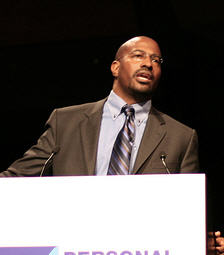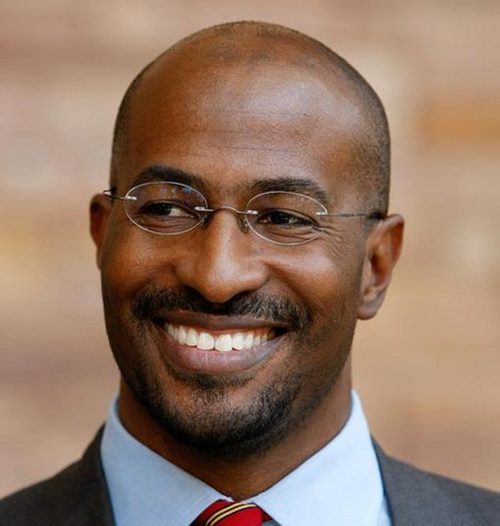
“We have the chance now to create new markets, new technology, new industries, and a new workforce. “The time has come for the nation to give greater support to the problem solvers-the clean-energy producers, green builders, eco-entrepreneurs, community educators, green-collar workers, and green consumers,” he states.

Stronger support from government & more investment Besides the urgency of motivating wider public participation, Jones outlines the important roles that government, entrepreneurship and investment will play in building a green economy that will also promote social equality.

By directly engaging working-class, low-income and urban communities in the retrofitting, weatherizing and solarizing of America, not only will they benefit from hundreds of thousands of non-exportable jobs in the emerging green economy, but they will also represent the pivotal force sorely needed to turn America’s environmental tide. You may ask : what does environmentalism have to do with alleviating poverty ?Īccording to Jones, it has everything to do with it – and his simple premise has a populist but pragmatic ring to it. Jones defines a green-collar job as a “family-supporting, career-track job that directly contributes to preserving or enhancing environmental quality,” but is also part of what he calls the “one solution fix our two biggest problems” – namely, poverty and our environmental crisis. His latest book, The Green Collar Economy, comes out today and discusses the social, economic and political implications of the “green-collar job” (a term that’s being bandied around a lot nowadays).

Most recently, Jones is the founder of Green For All, a national initiative committed to creating “green pathways out of poverty” and advocating “green-collar jobs for all.”

Based in Oakland, CA, the civil rights and environmental activist has been working tirelessly for the last decade and a half – first as the co-founder of the Ella Baker Center for Human Rights, then Color of Change – two social justice organizations striving to give positive alternatives and a political voice to vulnerable communities. A review by Carl Davidson, from the can be found here : Green Jobs meet the Solidarity Economy ( Review by Kimberley D.Mok, Montreal, on Treehugger follows :


 0 kommentar(er)
0 kommentar(er)
